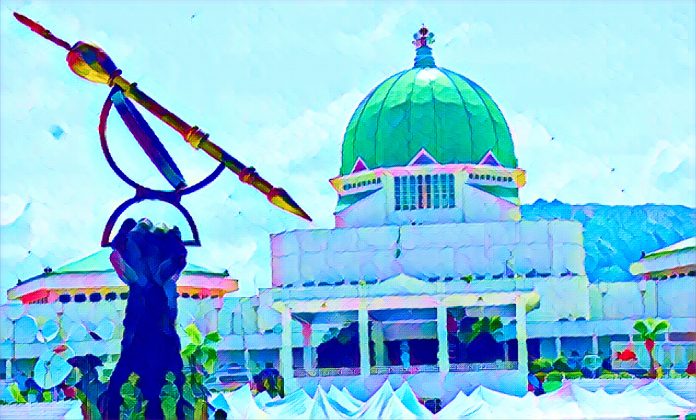The National Assembly approved bills to amend the 2024 Appropriation Act and the 2023 Finance Act for the second reading. The House of Representatives, led by House Leader Julius Ihonvbere, passed the bill without debate. It includes N3.2 trillion for capital expenditure and N3 trillion for recurrent expenditure.
On December 31, 2024, the House passed a N27.5 trillion budget for the 2024 fiscal year. The breakdown included N1.74 trillion for statutory transfers, N8.27 trillion for debt servicing, N8.77 trillion for recurrent (non-debt) expenditure, and N9.99 trillion for capital expenditure.
Recently, the House extended the implementation of the capital component of the 2023 Appropriation Act to December 31, 2024. This move sparked diverse reactions among lawmakers, with some opposing it.
Before passing the 2024 Appropriation Act Amendment Bill, the House held an executive session for about an hour. Speaker Tajudeen Abbas stated that the session focused on security and welfare issues.
Meanwhile, the Senate also passed the bill. Senate Leader Opeyemi Bamidele presented the general principles of the bills at plenary. Bamidele moved to suspend Senate rules to allow the process of second reading, highlighting that the bills were first read on July 17, following their transmission by President Bola Tinubu.
Bamidele explained that the 2024 Appropriation Act amendment bill seeks to amend the authorization of issuance from the consolidated fund, allocating N3.2 trillion for capital expenditure and N3 trillion for recurrent expenditure. The Finance Act 2023 amendment aims to impose a one-time windfall tax on banks’ foreign exchange gains realized in their 2023 financial statements and to enhance general tax administration.
The 2024 appropriation amendment bill is needed to fund infrastructure projects and other critical initiatives across the country. These expenditures will be funded by expected federal revenue, supporting capital infrastructure, education, healthcare, and public welfare.
Adamu Alero (PDP-Kebbi), who seconded the motion, emphasized the importance of supporting the bill, especially in light of the expected minimum wage increase for workers. He urged lawmakers to pass the amendment to secure funds for minimum wage payments and infrastructure projects.
“If we don’t provide money for the minimum wage this month, there will be public outcry. Nigerians have been patient and have waited,” Alero said. He commended President Bola Tinubu for the bills, noting their importance in completing legacy projects.
Deputy Senate President Jibrin Barau, who presided over the plenary, said the amendment aimed to provide additional revenue to the 2024 budget. Seriake Dickson (PDP-Bayelsa) suggested that the bill be stood down to seek expert views on the proposed bank taxes. Other senators, including Garuba Maidoki (APC-Kebbi), Adetukunbo Abiru (APC-Lagos), Adams Oshiomole (APC-Edo), and Sani Musa (APC-Niger), supported the bills.
Jibrin referred the bills to the Senate Committees on Appropriations and Finance for further legislative input. The committees are to report back to plenary in one week.



